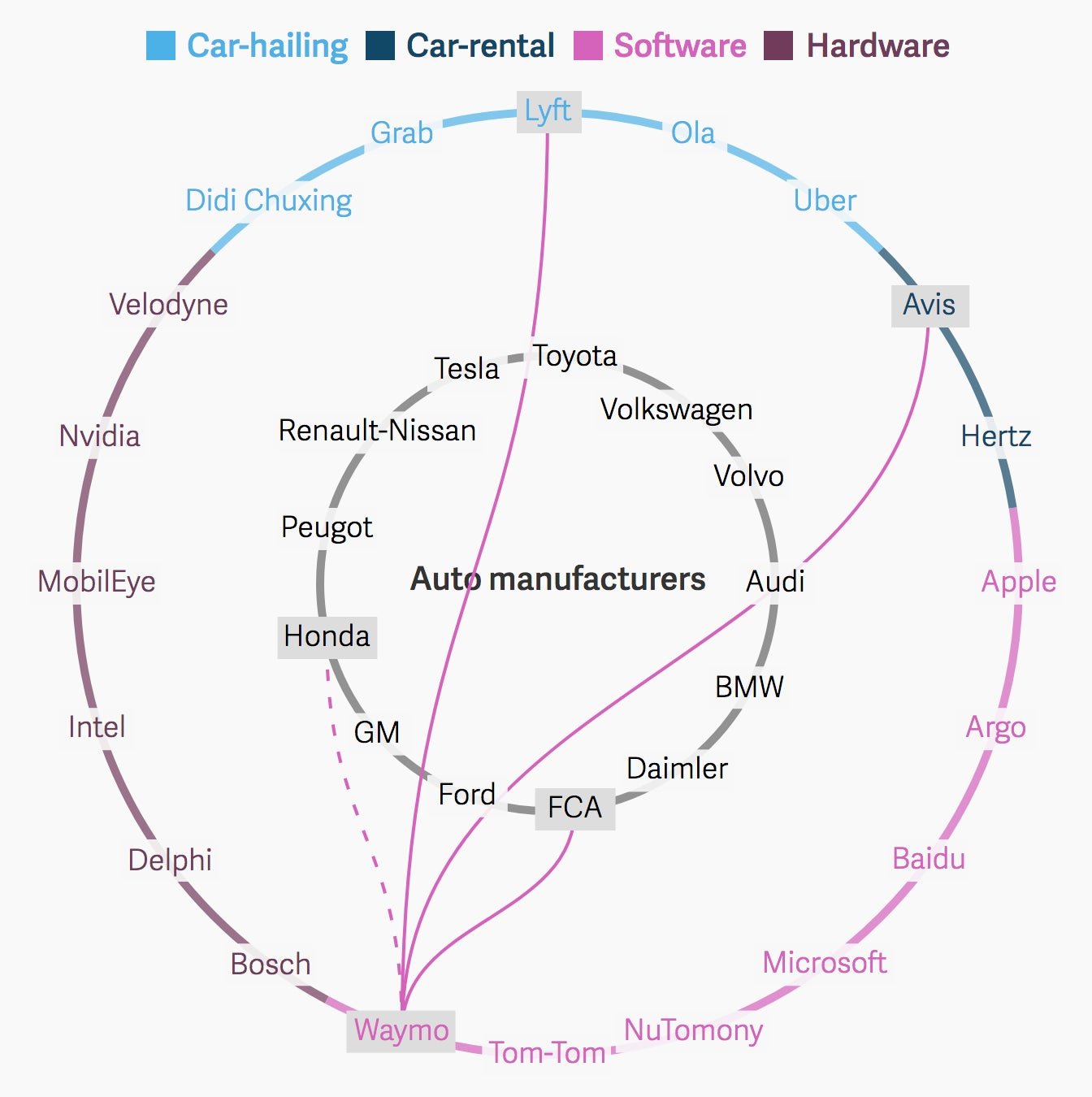The entangling alliances of the self-driving car world, visualized
“It’s hard to keep track of who’s working with who and what’s going on,” Lyft chief strategy officer Raj Kapoor told journalists last week, speaking about self-driving car partnerships.


“It’s hard to keep track of who’s working with who and what’s going on,” Lyft chief strategy officer Raj Kapoor told journalists last week, speaking about self-driving car partnerships.
We agree.
While fully autonomous cars might not really hit the roads for a few years (or ever!), automakers, tech companies, auto suppliers, and even car-rental services have woven an intricate web of partnerships that’s become difficult to untangle.
Quartz looked at 33 companies that have publicly partnered with at least one other company to pursue work on self-driving cars.
There are many reasons companies would want to partner: sharing data, integrating hardware and software, collaborating on open-source software. Data, as has been shown time and time again, is immensely important and likely often a driving factor.
The public details of these partnerships are often vague. For instance, Chinese search giant Baidu has taken a page from Google’s ubiquitous Android operating system by releasing a free and open-source operating system for self-driving cars called Apollo, and has announced partnerships with automakers like Ford and Daimler. Will automakers’ cars use the operating system, or just parts? Will they contribute code? Will they share data?
What is clear, however, is that automakers are relying on hardware and software from Silicon Valley to make this technology work. Nvidia, a graphics-chip manufacturer that has ventured into building embeddable computers to power self-driving cars, is incredibly well situated, working with eight automakers. One of those companies is Tesla, which uses Nvidia chips to power every single one of its cars.
Outside of just automakers, Baidu is also well-connected. It’s partnered with nearly every big player in hardware, ostensibly to make Apollo work with any combination of sensors that might be found on a self-driving car.
It’s worth noting that while not formally partnered, sensors from MobileEye and Velodyne have been seen on the research vehicles of companies such as Apple and Waymo—this graphic doesn’t comprehensively cover which hardware companies are supplying others.